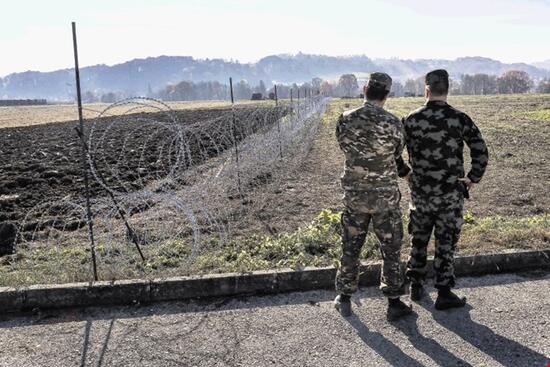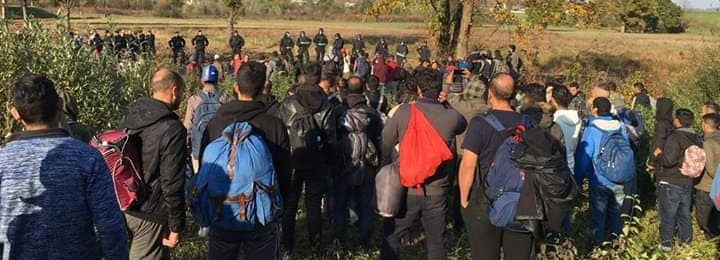Report on illegal practice of collective expulsion on Slovene-Croatian border

Last year Slovenian police officially deported 4653 people to Croatia under the regulation of the readmission agreement. This is means that more than half of 9149 people who were processed for illegally crossing the border were handed over to Croatian police and in further expelled to Bosnia and Herzegovina. Large majority of people who were processed under the readmission agreement were denied their right to asylum procedure by Slovenian police who is still conducting systematic expulsions to Croatia under the guise of the readmission. This practice of denial of right to seek asylum has become systematic with the issue of general police instructions on end of May 2018 when official number of readmission increased dramatically. For example, in police station Črnomelj which the closest in walking distance from Velika Kladuša in May out of 379 people who were processed for illegally crossing the border 371 applied for asylum, but after the issue of police commands in June out of 412 people who crossed the border illegally only 13 officially asked for asylum. Threats, violence, abuse of power and denial of basic rights has became a common practice in other border police stations, collective expulsions to Croatia are happening daily with the knowledge and support of high police and government officials despite high risk of further violence and theft done by police in Croatia.
In this article is attached a report on collective expuslion from Slovenia and Croatia and work of civil iniciative Info Kolpa which operated a phone line to act as mediator between police and migrants in asylum procedurees. The phone line was used when migrants who contacted the phone number were on the territory of the Republic of Slovenia with the intention to seek asylum and would express a desire for the volunteers to inform the police about their location. In such cases the nearest was informed. The phone line volunteers would send the geographical location, information on people seeking asylum and a clear statement that people are in dire need of help and wish to apply for international protection in Slovenia to the regional police station. This was done via phone or an email sent to the police station in jurisdiction. Also the Office of Ombudsman in Slovenia and different NGOs involved with protection of human rights were informed. This report contains 20 such recorded cases (106 persons); in 6 cases, persons were admitted to the asylum procedure in Slovenia (27 persons); in 7 cases they were pushbacked to Croatia and then illegally expelled to Bosnia and Herzegovina (39 persons); only one person was able to initiate the procedure for international protection after extradition to Croatia and was not expelled to Bosnia and Herzegovina. In 7 cases (39 people) there is no information of what had happened with the people, as they haven't made any contact after they were apprehended by Slovenian police.
You can find the full report in attachments along with censored police instructions and documents from Ombudsman office.
